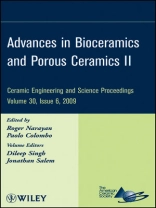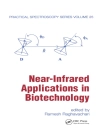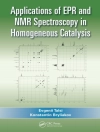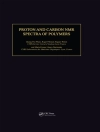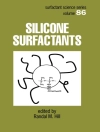Improve your understanding in the most valuable aspects of advances in bioceramics and porous ceramics. This collection of logically organized and carefully selected articles contain the proceedings of the ‘Porous Ceramics: Novel Developments and Applications’ and ‘Next Generation Bioceramics’ symposia, which were held on January 27-February 1, 2008.
สารบัญ
Preface.
Introduction.
Bioceramics.
One-Step Preparation of Organosiloxane Derived Silica Particles.
Fabrication of Hybrid Thin Films Consisting of Ceramic and Polymer Using a Biomimetic Principle.
Structural Investigation of Nano Hydroxyapatites Doped with Mg2+ and F Ions.
Novel Bioceramics for Bone Implants.
20 Years of Biphasic Calcium Phosphate Bioceramics Development of Applications.
Biocompatibility Aspects of Injectable Chemically Bonded Ceramics of the System Ca O-Al2-O3-P2O5-Si O2.
Aspects of Dental Applications Based on Materials of the System Cao-Al2O3-P2O5-H2O.
Synthesis and Characterization of Bioactive Glass Ceramics.
Evaluation of a PDLLA/45S5 Bioglass Composite: Mechanical and Biological Properties.
Synthesis and Characterization of Wet Chemically Derived Magnetite-HAP Hybrid Nanoparticles.
Low Temperature Consolidation of Nanocrystalline Apatites Toward a New Generation of Calcium Phosphate Ceramics.
Sintering Behavior of Hydroxyapatite Ceramics Prepared by Different Routes.
Vaterite Bioceramics: Manodisperse Ca CO3 Boconvex Micropills Forming at 70 C in Aqueous Ca Cl2-Gelatin-Urea Solutions.
Novel DNA Sensor Based on Carbon Nanotubes Attached to a Piezoelectric Quartz Crystal.
Thermal Conductivity of Light-Cured Dental Composites: Importance of Filler Particle Size.
Porous Bioceramics.
Manufacturing of a Porous PPLA-HA Composite Scaffolds by Sintering for Bone Tissue Engineering.
Effect of Zinc on Bioactivity of Nano-Macroporous Soda-Lime Phosphofluorosilicate Glass-Ceramic.
Porous Scaffolds Using Nanocrystalline Titania for Bone Graft Applications. Porous Biomophic Si C for Medical Implants Processed From Natural and Artificial Precursors. Porous Ceramics. Strength and Permeability of Open-Cell Macro-Porous Silicon Carbine as a Function of Structural Morphologies. Design of Silica Networks Using Organic-Inorganic Hybrid Alkoxides for HIghly Permeable Hydrogen Separation Membranes. Computer Simulation of Hydrogen Capactiy of Nanoporous Carbon. Nanostructured Alumina Coatings Formed by a Dissolution/Precipitation Process Using AIN Powder Hydrolysis. Porous Fe Cr-Zr O2(7Y2O3) Cermets Produced by EBPVD. Use of Ceramic Microfibers to Generate a High Porosity Cross-Linked Microstructure in Extruded Honeycombs. Porous B-Si3N4 Ceramics Prepared with Fugitive Graphite Filler. Data Reliability for Honeycomb Porous Material Flexural Testing. Aluminum Silicate Aerogeis with High Temperature Stability. Development of Novel Microporous Zr O2 Membranes for H2/CO2 Separation. Author Index.
เกี่ยวกับผู้แต่ง
Roger Narayan is Associate Professor at the Joint Department of Biomedical Engineering of North Carolina State University. Earlier assignments have taken him e.g. to Oak Ridge National Lab. His research centers on biomedical engineering including biomaterials and nanoscale systems, intelligent systems, biomedical sensors, as well as nanoelectronics and photonics. He also has publishing experience with Journal boards.
Paolo C. Colombo is a cardiologist who specialized in treating patients with heart failure, cardiac assist device and heart transplant. Dr. Colombo is board certified in Cardiovascular Disease and in Advanced Heart Failure and Transplant Cardiology.
